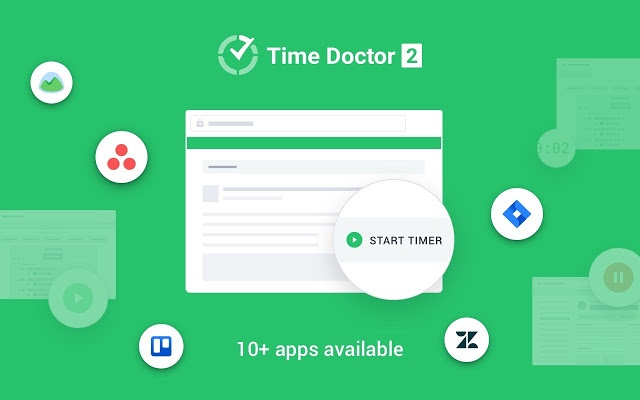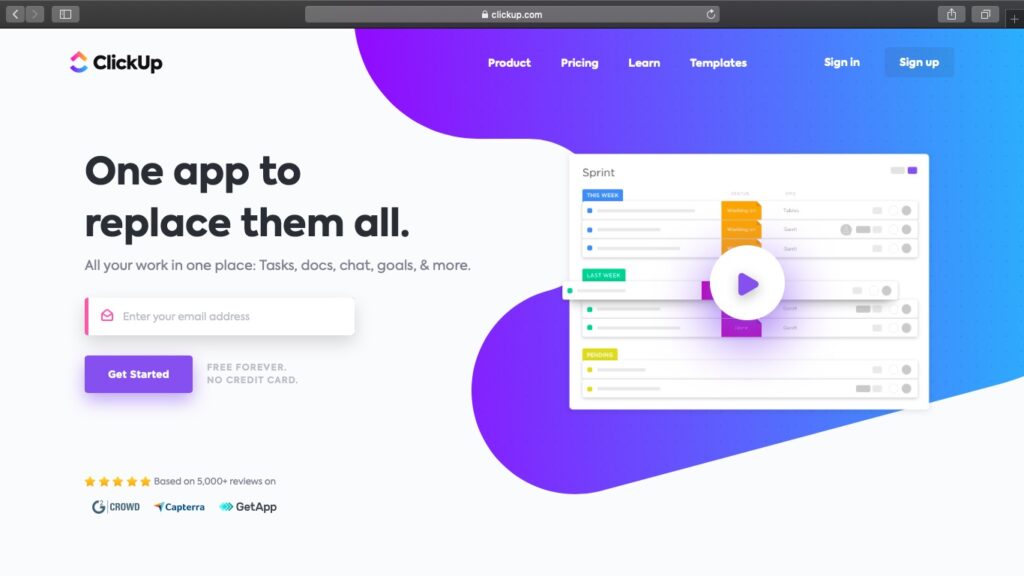If you’re a business owner looking to grow your company, then offshoring could be the right choice for you. It’s one of the best cost saving strategies that organizations use to expand their business operations.
But cost savings is just one of the many benefits of offshoring.
In this article, we’ll highlight the six key benefits of offshoring. We’ll then explore what offshoring is and how it differs from outsourcing. And to help you get started, we’ll also cover the best tools for managing an offshore team.
This article contains:
(Click on the links below to go to a specific section)
- 6 Key Benefits of Offshoring
- What is Offshoring?
- Offshoring vs. Outsourcing: What are the Differences?
- 2 Types of Offshoring
- How to Manage an Offshore Team
Let’s get started.
6 key benefits of offshoring
Offshoring involves relocating your business operations to a foreign country.
Here are six reasons why you should consider offshoring your company’s activities:
Note: If you aren’t familiar with offshoring, feel free to jump ahead to the section covering what it is and how it differs from outsourcing. You can always scroll back here when done.
1. Lower labor cost and access to skilled labor
Given the high cost of living in developed countries, it can be hard to find a skilled candidate at a reasonable labor cost.
Instead, top offshoring locations such as India, China, and Malaysia offer a vast pool of skilled labor. You can recruit workers from these countries at a lower labor cost as these countries have a lower cost of living as compared to countries like the US and UK.
In addition to the lower labour cost, offshoring can also reduce or even eliminate the cost of recruitment.
For example, if you have an offshoring service provider, they’ll have the necessary expertise and human resource workforce to provide the perfect skilled labor for your company.
2. Savings and financial incentives
Here are some of the other financial benefits of offshoring:
A. Save on labor and real-estate costs
Offshoring in a developing country is also more cost-effective for companies in labor-intensive industries like call centers and manufacturing.
An offshore location will reduce your in-house staffing needs, so you’ll require less office space and save more on real estate expenses. As a manufacturer, this can help you benefit from cost reduction for your entire supply chain.
Since offshoring saves you money through lower labor costs and other financial incentives, you can invest the capital saved in critical business needs. For example, you can improve the core functions of your business or revamp your marketing programs.
B. Government incentives
Certain governments grant tax breaks and financial incentives to businesses that invest in their economies.
An offshoring destination such as the Philippines is one such example. This offshore country has a set of business regulations to attract foreign direct investments from a business owner.
Financial incentives, such as tax holidays, make it more affordable for you to relocate to an offshoring destination. When your offshoring company earns more revenues from tax benefits and other offshoring advantages, it’ll help maximize profits.
3. Continuous business operations
With an offshoring partner or service provider, your company can work around the clock, regardless of time zone differences.
How?
By having teams distributed in other parts of the world, in different time zones — you can have your company operate 24/7. When you’re asleep, your team on the other side of the world could be working.
If there are incomplete tasks in your parent company, your local team can hand over those tasks to your offshore staff. This will ensure that there’s a continuous workflow on projects in both your parent and offshoring company.
Having continuous business operations will help you deliver better customer service and increase client satisfaction.
4. Improved control on operations
Handing over part of your business operation to an outsourcing company limits your control over the operations that you outsource.
But you can avoid this by creating an offshoring company instead and retain control over your business operations.
Offshoring lets you provide instructions, train your staff, and carry out everything else the way you want. However, the core control of tasks remains with you while your offshoring partner executes according to your will.
This is more flexible than hiring an outsourcing company.
5. The opportunity to scale up sustainably
Scaling up a company can be challenging. You need a significant financial investment when recruiting even a single skilled employee.
But if that employee decides to leave early, this could overburden you with work. It would also result in a lot of additional effort from your company’s human resource department — recruiting and training someone new.
With offshoring, it’s much easier to scale your business — especially when you partner with a service provider. You can expand your offshore company faster than an in-house team, leaving you free to focus on core business initiatives that drive growth.
6. Reach newer overseas markets
When you have an offshore company in another country, your international labor force can help you explore new markets in different overseas locations.
An offshore employee may offer a better understanding of their markets, regional trends, and business risks that you may not be aware of. They can help you identify profitable offshore destinations where you can carry out your business.
Now that you’re aware of the key offshoring benefits, let’s explore offshoring in depth.
What is offshoring?

Offshoring is when you move your business processes to a different country. You relocate activities to an offshore location but continue to manage them from within your company.
An offshoring business operation can be carried out by a subsidiary of your company or by an external offshore service provider.
And depending on your requirements, you can opt for services offshoring or production offshoring:
- Services offshoring is when you relocate your company’s administrative and technical services like finance, human resource management, and software development.
- Production offshoring is when you relocate physical processes, such as manufacturing, to a different country. This helps you deliver the same high-quality products at a lower production cost.
Due to the rapid rise in globalization, most organizations consider offshoring as an effective strategy to expand business operations.
For example, most products made in developed countries are more expensive than those produced in a developing country like the Philippines.
Why?
Because of the lower cost of manufacturing in developing countries.
A company relocates its operations from expensive locations to a more affordable offshoring destination in a developing country. This way, companies can sell those goods to developed countries for a greater profit.
These financial benefits, rapid globalization, and advancements in modern technology have led to a spike in both services and production offshoring globally. As a result, offshoring is now an accessible and suitable option for modern business owners.
Offshoring vs. outsourcing: What are the differences?
Offshoring and outsourcing are often used interchangeably — and that’s wrong.
As a business owner, you need to understand the key differences between the two terms.
Offshoring is when you relocate work to a different country, usually to take advantage of cost saving. When offshoring, you can manage your offshore company’s administration and operations, or you can hand over the work to your offshoring partner.
Outsourcing is when you hire an outsourcing company to offer services or manage a specific business operation at a lower cost. You’d normally outsource specific tasks to an outsourcing partner or a freelancer if your team doesn’t have the capacity for them.
Although the principles of offshoring and outsourcing sound similar, the execution strategy is what makes them different.
Learn more about the advantages and disadvantages of outsourcing in this guide.
2 types of offshoring
We can divide offshoring into two different categories:
1. Nearshoring
Nearshoring involves offshoring services to a nearby offshore country. Usually, this is a country that’s within the same continent.
This is not to be confused with onshoring — a process where you relocate your services within the same country. With onshoring, you’re doing business “onshore” as opposed to “offshore.”
Nearshoring offers several benefits that are quite similar to those offered by offshoring. Some of the benefits include lower wage payments, lower cost of doing business, etc.
When you establish an offshore company in another continent, an issue like cultural difference can be a problem. Operating nearshore helps avoid cultural difference challenges and many other social issues.
Nearshoring also helps you avoid the risk of a security breach. Sharing information between systems and locations, especially internationally, increases the risk of a security breach. By nearshoring, you can avoid this risk.
Read more about nearshoring services.
2. Offshore outsourcing
Offshore outsourcing is when you combine outsourcing and offshoring by contracting work to a third-party in another country.
This is a cost saving strategy that helps you simultaneously explore both the advantages of offshoring and outsourcing.
It’s vital to consider offshoring pros and cons before choosing to offshore outsource any part of your business operations. You’ll need to choose the right agency to avoid issues like hidden costs and possible security risks.
Explore the pros and cons of offshore outsourcing.
How to manage an offshore team
We’ve outlined a couple of offshoring advantages, but it’s vital to understand both the pros and cons of offshoring.
Here are some common challenges of offshore team management that you need to be aware of:
- Performance monitoring.
- Day-to-day project coordination.
- Lack of face-to-face communication.
- File storage and sharing.
To overcome these challenges, here’s a list of tools you can use to manage your offshore remote team:
1. Time Doctor for time tracking and performance monitoring

If you want to gain insights into your remote workers’ performance, you need a powerful productivity management app like Time Doctor.
Large corporations such as RE/MAX and small and medium businesses, such as Thrive Market and Firehouse Subs, use Time Doctor to boost employee productivity across the board.
You can use Time Doctor to gauge the productivity of your offshore staff using real-time analytics and comprehensive reports. Based on these insights, you can take steps to improve your employees’ performance and make other strategic improvements.
Key features
- Track the total amount of time your workers spend on specific projects.
- Time tracking flexibility – choose between manual or automatic time tracking.
- Generate labor productivity reports arranged by day, week, or month.
- View which websites and apps your employees used most.
- Screencasts of your employees’ monitors help you determine what your workers are doing during tracked hours.
- Track and monitor work progress even if you and your team are working offline.
- Compatible with all mobile and desktop devices.
- Wok under Time Doctor’s extensive privacy and security policies.
Pricing
Paid plans start at $7/user per month. Time Doctor also offers a free 14-day trial that doesn’t require a credit card.
Customer ratings
- G2: 4.4/5 (100+ reviews)
- Capterra: 4.5/5 (300+ reviews)
2. Slack for instant messaging

Slack is an instant messaging platform which is great if you need to send quick messages to your offshore or remote team.
Key features
- Organize conversations by creating channels.
- Send quick one-on-one or group messages to your offshore team.
- Integrates with apps, like Time Doctor and ClickUp.
- Search feature for finding messages and documents quickly.
- Video conferencing and audio calls.
Pricing
Paid plans start at $6.67/user per month.
Customer ratings
- G2: 4.5/5 (25,000+ reviews)
- Capterra: 4.7/5 (20,000+ reviews)
3. Zoom for video conferencing and meetings

Zoom is a popular app for hosting video conferences and business meetings.
If you operate in a sector such as manufacturing, Zoom makes it easy to discuss quality control issues with your offshore staff.
Key features
- Built-in chat function.
- Easy screen-sharing option that allows multiple participants to share their screens at the same time.
- Divide large meetings into smaller groups using breakout rooms.
- Adds up to 1000 participants in a single video meeting.
Pricing
There’s a free plan for up to 100 participants. Paid plans start at $149.99/per year.
Customer ratings
- G2: 4.5/5 (34,000+ reviews)
- Capterra: 4.6/5 (7,000+ reviews)
4. ClickUp for project management

ClickUp is a project management tool that can help streamline work, particularly if you’ve got distributed or remote workers.
Key features
- Create task statuses and priorities.
- Numerous integrations for apps such as Slack, Office 365, and Outlook.
- Organize projects into Gantt charts that the entire team can access.
- Automate repetitive tasks.
Pricing
There’s a free version available, and paid plans start at $5/user per month.
Customer ratings
- G2: 4.7/5 (2,700+ reviews)
- Capterra: 4.7/5 (2000+ reviews)
5. Google Drive for file storage and sharing

Google Drive is a popular file-sharing program that lets you share files with your remote team and collaborate on documents with ease.
Key features
- Share files with your offshore team.
- Access files from any device, even when you’re offline.
- Several people can edit and comment on files in real-time.
- Integrates with various apps you may already use, like ClickUp and Slack.
Pricing
There’s a free version available. Paid plans start at $1.99/month for 100 GB storage.
Customer ratings
- G2: 4.7/5 (12,000+ reviews)
- Capterra: 5/5 (22,000+ reviews)
Wrapping up
Offshoring presents several benefits that drive business growth.
It lets you easily scale up your business and gives you access to skilled labor at a lower labor cost. And it caters to all business models for sectors like IT services, call centers, and more.
By taking advantage of all the benefits of offshoring, you can successfully build a profitable business.
And while we’ve outlined several offshoring advantages, there are also some challenges to offshoring. However, you can easily overcome most of those by using the right tools such as Time Doctor.
To get started, why not sign up for Time Doctor to boost your in-house and offshore team’s productivity?

Andy is a technology & marketing leader who has delivered award-winning and world-first experiences.


